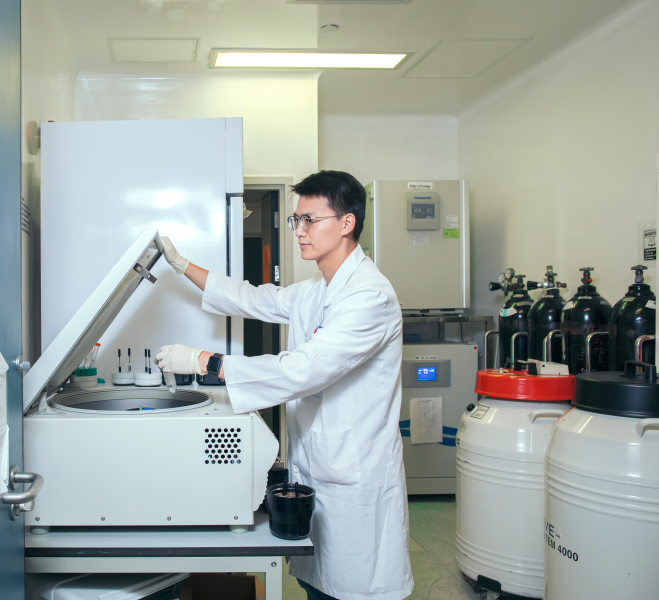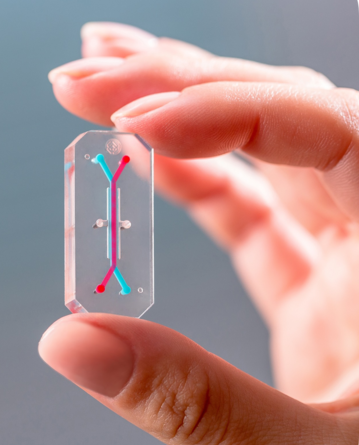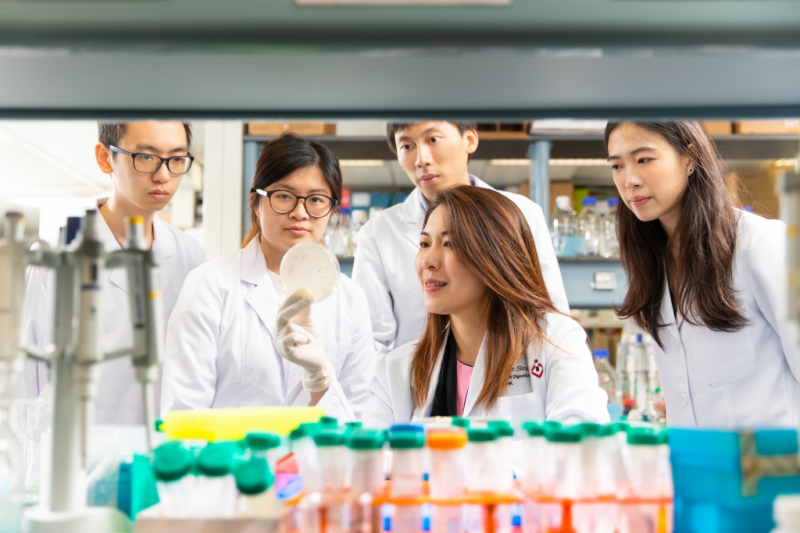Grants from LKSF foster strategic, system-wide advances in knowledge
Mr Li Ka-shing recognises that institutional capability must be built by providing platforms that scientists and engineers need to connect research and application. In 2020, the Li Ka Shing Foundation (LKSF) made a series of grants to advance the institutional framework of Hong Kong in fields related to the miracle of life.
These grants, totalling HK$170 million, support research capacity at Hong Kong universities to empower a broad range of scientists to make new discoveries using world-class tools.

Thinking big by seeing small
Through the support of a HK$100 million grant, the Li Ka Shing Faculty of Medicine at the University of Hong Kong will host a Cryo-electron Microscope Unit. Cryo-electron microscopy (cryo-EM) – a type of transmission electron microscopy – allows cellular structures to be observed in 3D detail in their natural state, a dramatic improvement over taking 2D sections of cellular material and staining it to reveal internal structures. Cryo-EM’s resolution allows for the discovery of complex protein structures, the underpinning of many of the most promising lines of investigation in the biological sciences. The importance of this technological advance was highlighted when the creators of cryo-EM were awarded the 2017 Nobel Prize in Chemistry.
Grants from LKSF will advance the institutional framework of Hong Kong in fields related to the miracle of life.
Leading translational medicine
Translational medicine is an advanced field that seeks to connect biological and biomedical research into the development of treatments to be used in clinical settings. A grant of HK$35 million will support the Li Ka Shing Institute of Health Sciences through the installation of an advanced analytical system and mass spectrometer at the Chinese University of Hong Kong (CUHK) Faculty of Medicine. Hong Kong is a leader in Asia in this sector. Professor Dennis Lo Yuk Ming, Director of the Institute, and his colleague Professor Jiang Peiyong are the only two Asia-based scientists in Nature Biotechnology’s global ranking of the “Top 20 Translational Researchers of 2019” and are a vital part of the CUHK translational medicine ecosystem.
This analytical system and technology will bolster the creation of “the world’s foremost translational biomedical research platform”. The feedback and refinement loop of translational medicine will be of vital importance in combatting a wide range of maladies.
Another example of cross-discipline research is Synthetic Biology. Biologists, chemists, engineers and software developers will join with geneticists to increase knowledge and develop solutions through a commitment of HK$30 million for a new Synthetic Biology initiative at the Hong Kong University of Science and Technology. By harnessing the power of nature, these multi-domain technologies and a cooperative approach will not only solve medical conundrums but will also answer challenges in manufacturing, sustainability and agriculture.


Next-gen tech needs next-gen minds
Hong Kong’s scientists will need to be replenished by up-and-coming students who can master what may become the most pervasive tool of modern research: Artificial Intelligence (AI).
A HK$5 million donation from Kneron, one of the top three providers in the world of Edge AI solutions, will support the implementation of software and hardware learning tools at the Education University of Hong Kong. The new system will advance student understanding of system thinking, symbol application, and scientific and technological information.
Underpinning these grants is the strategic level of thinking needed to move Hong Kong’s scientific and technological establishments forward together. These donations will empower academics, and ultimately the people of Hong Kong and the world will benefit from the breakthroughs generated by this cumulative largesse.
Hong Kong’s scientists will need to be replenished by up-and-coming students who can master... Artificial Intelligence.